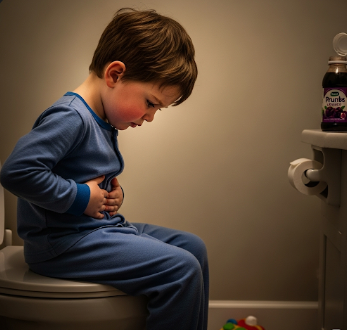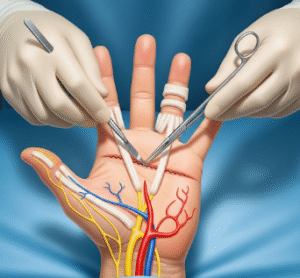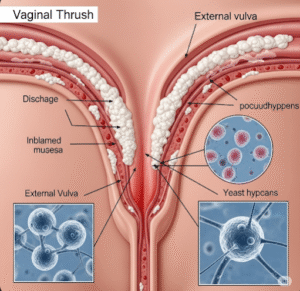Overview
Constipation in children is a common digestive issue characterized by infrequent, difficult, or painful bowel movements. It can affect infants, toddlers, and school-aged children, impacting their comfort, appetite, and overall well-being. While occasional constipation may result from dietary changes or dehydration, persistent constipation may signal underlying gastrointestinal disorders or behavioral factors. In Korea, pediatric clinics and hospitals provide comprehensive assessment, dietary guidance, medical treatment, and behavioral strategies to manage constipation effectively in children.
Key Facts
▶ Prevalence: Very common among children, especially during toilet training or dietary transitions.
▶ Causes: Poor diet, dehydration, lack of physical activity, stress, or underlying medical conditions.
▶ Associated Symptoms: Abdominal pain, bloating, hard stools, and occasional fecal incontinence.
▶ Treatment Options in Korea: Dietary modifications, medications, behavioral therapy, and advanced pediatric care.
▶ Duration: Usually temporary, but chronic constipation requires evaluation.
What is Constipation in Children?
Constipation refers to difficulty in passing stools, reduced bowel movement frequency, or hard and dry stools.
▶ Acute Constipation: Sudden onset, often triggered by dietary changes, illness, or travel.
▶ Chronic Constipation: Persistent over weeks or months, sometimes requiring medical intervention.
▶ Functional Constipation: No identifiable structural cause; often related to behavioral or dietary habits.
▶ Obstructive Causes: Rarely, structural abnormalities like Hirschsprung’s disease or anal stenosis may contribute.
Note: Early recognition and intervention are essential to prevent complications such as painful bowel movements, stool withholding, or fecal impaction.
What Symptoms Are Related to Constipation in Children?
▶ Infrequent Bowel Movements: Typically fewer than three times per week.
▶ Hard or Lumpy Stools: Difficult and painful to pass.
▶ Abdominal Pain or Cramping: Often relieved after passing stool.
▶ Bloating: Swelling or fullness in the abdomen.
▶ Fecal Incontinence: Accidental leakage due to impacted stool.
▶ Loss of Appetite: Discomfort may reduce interest in food.
▶ Irritability or Behavioral Changes: Common in young children experiencing pain.
▶ Straining or Pain During Bowel Movements: Visible discomfort during defecation.
What Causes / Possible Causes
Constipation in children can result from dietary, behavioral, medical, or structural factors:
▶ Low Fiber Diet: Insufficient fruits, vegetables, and whole grains.
▶ Dehydration: Lack of adequate fluids leading to hard stools.
▶ Behavioral Factors: Toilet training, stool withholding, or fear of painful bowel movements.
▶ Low Physical Activity: Sedentary lifestyle reducing bowel motility.
▶ Medications: Certain pain medications, antacids, or iron supplements.
▶ Medical Conditions: Hypothyroidism, celiac disease, or metabolic disorders.
▶ Structural Abnormalities: Rare congenital issues such as anal stenosis or Hirschsprung’s disease.
▶ Stress or Emotional Factors: School-related stress, travel, or family disruptions.
Note: Identifying the underlying cause is essential for effective management and prevention of chronic constipation.
When Should I See a Doctor?
▶ Persistent Constipation: Lasting more than two weeks despite home management.
▶ Severe Pain or Vomiting: Suggests obstruction or serious gastrointestinal disorder.
▶ Blood in Stools: Can indicate fissures, infection, or underlying pathology.
▶ Fever or Unexplained Weight Loss: Signs of systemic illness.
▶ Failure to Thrive: Poor growth or nutritional deficiency in infants and toddlers.
▶ Abdominal Distension or Hard Mass: Could indicate fecal impaction.
▶ Recurrent Urinary Tract Infections: Sometimes associated with constipation.
▶ Developmental Concerns: Difficulty in toilet training or behavioral issues interfering with defecation.
Tip: Pediatric evaluation in Korea ensures accurate diagnosis, timely treatment, and prevention of complications.
Care and Treatment
Management focuses on dietary modifications, behavioral strategies, and medical treatment if needed:
▶ Dietary Adjustments: Increase fiber intake through fruits, vegetables, and whole grains.
▶ Adequate Hydration: Encourage regular water intake to soften stools.
▶ Regular Toilet Routine: Establish a consistent schedule after meals to promote bowel movements.
▶ Physical Activity: Encourage age-appropriate exercise to stimulate gut motility.
▶ Behavioral Strategies: Positive reinforcement for toilet training and stool passage.
▶ Medications: Laxatives or stool softeners prescribed for persistent cases under medical supervision.
▶ Pain Management: Address discomfort to prevent stool withholding.
▶ Monitoring: Keep a diary of bowel movements, diet, and symptoms to guide treatment.
Treatment Options in Korea
Medical Evaluation:
▶ Pediatric Consultation: Comprehensive assessment including history, growth, and physical examination.
▶ Laboratory Tests: Blood tests to check for thyroid function, celiac disease, or electrolyte imbalances.
▶ Imaging: Abdominal X-rays or ultrasound if fecal impaction or structural issues are suspected.
▶ Functional Assessment: Evaluation of bowel habits, dietary intake, and behavioral factors.
Advanced Therapies:
▶ Medications: Pediatric-appropriate osmotic or stimulant laxatives for short-term relief.
▶ Behavioral Therapy: Training programs for children with stool withholding or anxiety related to defecation.
▶ Surgical Intervention: Rarely required for structural abnormalities such as Hirschsprung’s disease.
▶ Nutritional Counseling: Tailored dietary plans to increase fiber, fluids, and overall digestive health.
Rehabilitation & Support:
▶ Parent Education: Guidance on nutrition, hydration, toilet training, and behavioral strategies.
▶ Follow-Up Care: Regular monitoring of bowel habits and symptom resolution.
▶ Specialist Clinics: Korean pediatric hospitals offer integrated care combining gastroenterology, nutrition, and behavioral therapy for long-term management.
Outcome: With timely evaluation and comprehensive care in Korea, constipation in children is effectively managed, discomfort is relieved, and long-term digestive health is promoted, reducing the risk of recurrence and complications.













